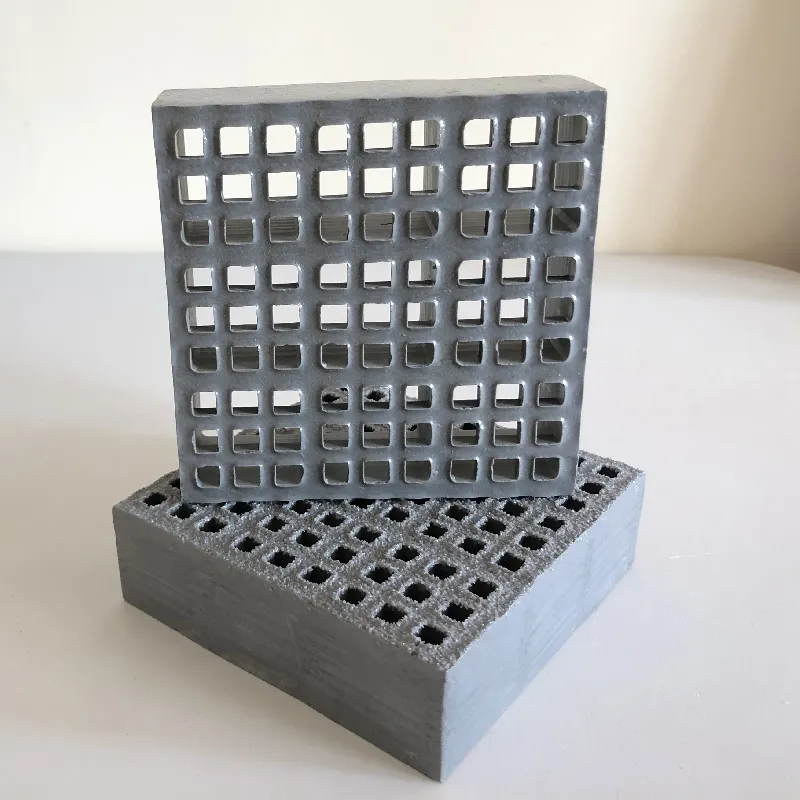loading...
- No. 9, Xingyuan South Street, Dongwaihuan Road, Zaoqiang County, Hengshui, Hebei, China
- admin@zjcomposites.com
- +86 15097380338
- Welcome to visit our website!
Understanding the Benefits of FRP Pressure Tanks in Industrial Applications
Understanding FRP Pressure Tanks Their Benefits and Applications
Fiber Reinforced Plastic (FRP) pressure tanks have gained significant popularity in various industrial applications due to their unique properties and advantages. Comprised of a composite material that combines plastic with fibers such as fiberglass, these tanks are lightweight, corrosion-resistant, and durable. This article will explore the key features, benefits, and applications of FRP pressure tanks, shedding light on why they are becoming a preferred choice across many sectors.
Key Features of FRP Pressure Tanks
FRP pressure tanks are designed to handle high pressure and are built to resist degradation from aggressive chemicals, making them suitable for numerous applications. They are typically manufactured through a process known as filament winding, which ensures a high strength-to-weight ratio. This process involves winding continuous strands of fiberglass around a mold, which is then infused with resin to create a robust structure.
Another notable feature of FRP tanks is their versatility in design. They can be manufactured in various shapes and sizes, which allows them to be customized to fit specific needs. This flexibility is crucial for industries with varying demands, such as water treatment, chemical processing, and energy production.
Advantages of FRP Pressure Tanks
1. Corrosion Resistance One of the primary benefits of FRP pressure tanks is their exceptional resistance to corrosion. Unlike metal tanks, which can degrade over time due to exposure to harsh chemicals and environmental conditions, FRP tanks remain intact for many years. This property significantly reduces maintenance costs and increases the lifespan of the tanks, offering long-term savings to businesses.
2. Lightweight FRP pressure tanks are much lighter than their metal counterparts, which makes them easier to handle, transport, and install. The reduced weight also translates into lower support structure requirements, leading to additional cost savings in construction and installation.
3. Cost-Effectiveness While the initial investment in FRP tanks may be higher than traditional options, the long-term savings related to maintenance, durability, and operational efficiency make them a cost-effective solution. Their longevity means less frequent replacement, further lowering expenses for companies.
4. Thermal Insulation FRP tanks also provide excellent thermal insulation properties. This is especially beneficial in processes requiring temperature control, helping to maintain consistent temperatures and reducing energy consumption during operation.
frp pressure tank

5. Environmental Impact With increasing attention on sustainability and environmental impact, FRP tanks stand out due to their ability to be recycled. Many manufacturers are committed to environmentally friendly practices, which adds another layer of appeal for companies looking to reduce their carbon footprint.
Applications of FRP Pressure Tanks
FRP pressure tanks find applications across a wide array of industries
1. Water Treatment They are commonly used in water and wastewater treatment facilities for storing chemicals, filtration, and other processes that require resilience against corrosive environments.
2. Chemical Processing The chemical industry heavily relies on FRP tanks for their ability to handle aggressive substances without degradation, safeguarding both product integrity and worker safety.
3. Oil and Gas In the oil and gas sector, FRP tanks are utilized for storing various fluids and gases, providing a safe and efficient solution to meet the demands of high-pressure environments.
4. Food and Beverage The food and beverage industry also benefits from FRP tanks, as they can be customized to meet strict hygiene and safety standards while being resilient against contamination.
5. Pulp and Paper FRP tanks are employed for storing and mixing chemicals used in pulp production, protecting against corrosion from caustic materials.
Conclusion
In conclusion, FRP pressure tanks are an innovative solution that offers numerous advantages to various industries. Their resistance to corrosion, lightweight nature, cost-effectiveness, thermal insulation properties, and eco-friendliness make them an attractive choice for companies seeking reliable and durable storage solutions. As industries continue to embrace advanced materials, FRP pressure tanks are poised to play a crucial role in optimizing processes and improving operational efficiencies.
-
GRP Structures: The Future of Lightweight, High-Performance EngineeringNewsJun.20,2025
-
FRP Water Tank: High-Performance Storage for Corrosive and Clean Water SystemsNewsJun.20,2025
-
FRP Square Tube: The New Industry Standard for Chemical and Structural ApplicationsNewsJun.20,2025
-
FRP Pultruded Profiles: The Ultimate Choice for Lightweight Structural StrengthNewsJun.20,2025
-
FRP Handrails: The Safer, Smarter, and Stronger Choice for Modern InfrastructureNewsJun.20,2025
-
FRP Grating: The Smart Solution for Durable, Lightweight Industrial FlooringNewsJun.20,2025
-
Why Choose a Galvanized Water Tank for Your Storage NeedsNewsMay.21,2025
